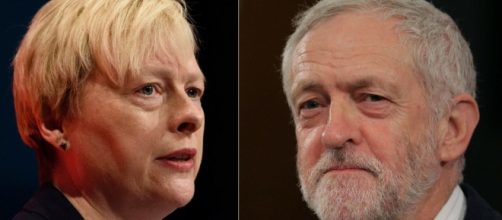Almost three weeks after 51.9% of UK voters opted toleave the European Union, pressure within the Labour Party continues to grow; a succession of shadow ministers have resigned, sparked by the dismissal of Hilary Benn on the 26th June. Following this, on 28th June, Jeremy Corbyn, the leader of the party since September 2015, lost a vote of no-confidence by 172 votes to 40. Angela Eagle, Member of Parliament for Wallasey, has now formally launched her bid to become the next Labour Party leader, after securing the nomination of at least fifty Labour MP’s and MEP’s.
However, despite pressure on Corbyn to step down, amidst assertions that he is unelectable and that his current position is now untenable, Labour members should not turn their backs on Corbyn, who is still the right person for the job.
The identity of the Labour Party.
Between the mid-1990’s and the late 2000’s, under the leadership of Tony Blair and Gordon Brown, the Labour Party was rebranded under the slogan ‘New Labour’. This primarily involved the alteration of Clause IV, widely seen as the party’s commitment to socialism, as Blair announced an abandonment of the party’s pursuit of nationalisation and an endorsement of market economics, in his Labour Party Conference Speech in 1994. Although Ed Miliband, prior to being elected party leader in September 2010, declared that the era of New Labour was over, this declaration arguably came to fruition only when Corbyn was elected.
Corbyn represents a return to the founding values of the Labour Party, which grew out of the trade unions and socialist parties of the nineteenth century. As a left-wing socialist, Corbyn represents the ideas of the ‘big men’ of the Party, perhaps most notably Aneurin ‘Nye’ Bevan, Minister for Health in the post-war Attlee government and spearhead of the establishment of the National Health Service, the Labour Party’s most profound achievement.
Angela Eagle: the hypocritical challenge
Many call Corbyn’s left-wing brand of Labour leadership ‘unelectable’. Perhaps they are right, which explains why Blair, who shifted the party to the right under ‘New Labour’, won a landslide election victory in 1997.
However, electoral success shouldn’t take precedence over ideological values. Indeed, the abandonment of Labour principles which allowed Blair to become Prime Minister led to the reckless invasion of Iraq in 2003, an action condemned, albeit indirectly, by Sir John Chilcot and the Iraq Inquiry, which reported to the public on 6th July 2016. And an investigation into the background of Angela Eagle reveals some surprises that move her further to the right than may have been initially perceived; she voted for a rise in tuition fees and the war in Iraq under Tony Blair, parallels with which can be drawn in 2015when she voted for bombing Syria. Jeremy Corbyn was elected leader with an overwhelming vote of 59.5% in the first round of the ballot in September 2015, as Labour Party members gave him a clear mandate to leave.
Now, in the wake of the EU referendum, his position is being challenged from inside the party, by some with a noticeably ‘New Labour’ record. In the words of Corbyn himself, I [Corbyn] was democratically elected leader of our party for a new kind of politics by 60% of Labour members and supporters, and I will not betray them by resigning.’

